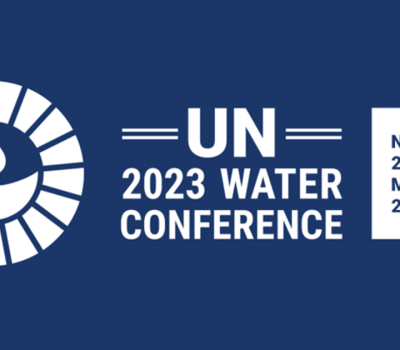Risky choices ahead - IVM statement on the UN 2023 Water Conference
by Johanna Koehler
“Water is in deep trouble” from over-use, insufficient progress for drinking water and sanitation along with climate change, UN Secretary General Antonio Guterres stated at the UN Water Conference in March 2023 (Varady et al., 2023). While it becomes apparent that the sustainable development goal for water will likely not be met by 2030, the first UN Water Conference in almost half a century has produced a large amount of non-binding commitments and pledges.
The conference has gathered some momentum for advancing the governance priority for the water agenda, including the agreement to establish a UN Special Envoy for Water, approximately 700 voluntary commitments, and pledges that amount to around USD 300 billion (UN, 2023). There was a discernible change to previous global conferences with increasing discussions on linking the governance of hydrological extreme events and water, sanitation, and hygiene services.
However, what remains unclear is how innovative governance structures shall be put in place, on the one hand to follow through with the implementation of these pledges, and on the other hand to critically evaluate how these pledges connect, whether they form a concerted response to the global water challenge, and establish where efforts are countering those of others in dealing with water-related risks. To move forward, further dialogue is needed that takes risk perceptions and responses from different perspectives into account.
A delegation of representatives from the Department of Environmental Policy Analysis at the Institute for Environmental Studies (IVM), Vrije Universiteit Amsterdam, participated in the UN Water Conference at the UN Headquarters in New York. Supporting and encouraging the United Nations to accelerate on the implementation of the UN Water Action Agenda we shared six reflections:
- We recommend that the potential of hybrid governance arrangements with public, private and civil society representation is further explored to deal with increasing environmental, social, political, and financial risks to advance more resilient, equitable and sustainable outcomes.
- Furthering the integration of science and policy is essential, for example as governments commit to scaling up pilots developed through research and innovative practices by local organizations. This is especially important in the rural water services sector, which is often neglected, as these areas are considered commercially unviable.
- Critical perspectives and voices representing environmental activists, indigenous people, youth representatives and dissenting scholars should be fully heard.
- An understanding of risk governance in the communication, perception, and translation of water related hazards into decision-making processes should be advanced.
- We welcome the recommended appointment of a Special Envoy for Water and suggest that this position especially focuses on policy decision-making processes and their coordination including critical perspectives and local approaches.
- More attention to contested issues such as water grabbing, water defenders, water contestation should be ensured and insights from the academic community used to develop strong legal frameworks and water right safeguards.
In implementing the UN Water Action Agenda, some risky choices lie ahead and it is important to consider who is at the table, whose risks are being considered and addressed, whose metrics are being used and who is responsible for taking action.





